Ten Takeaways From the 2020 Emmy Nominations
-
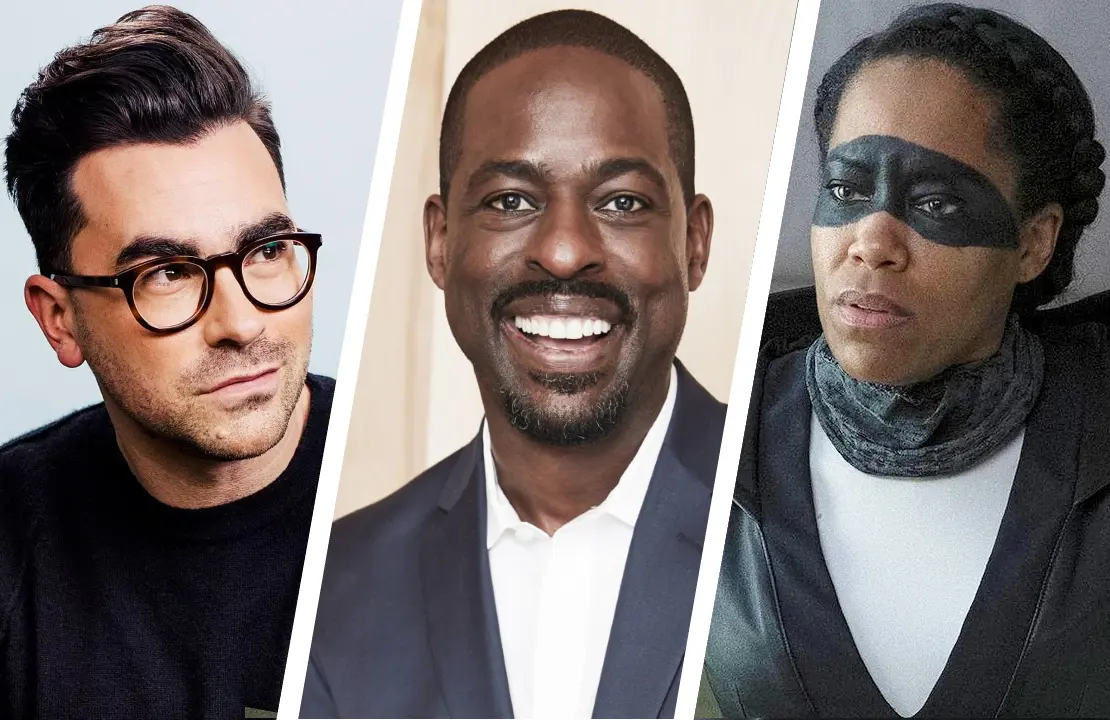 Dan Levy, Sterling K Brown and Regina King were among the Emmy nominees announced Tuesday. (Photos: CBC/NBC.HBO)
Dan Levy, Sterling K Brown and Regina King were among the Emmy nominees announced Tuesday. (Photos: CBC/NBC.HBO)Joe Reid isn't just Primetimer's managing editor. He's also an awards expert and one half of the popular podcast, This Had Oscar Buzz. Today Joe breaks down this year's Emmy nominations with an eye to the storylines we'll be following leading up to the 72nd Annual Emmy Awards in September.
Tuesday morning's Primetime Emmy nominations may have been socially distanced, but they managed to be plenty boisterous. They were loud (Leslie Jones is an enthusiast first, a TV presenter a distant second), they were glitchy, but they were also plentiful. Expanded fields in the Drama and Comedy Series categories, as well as several acting categories, meant that even more TV is set to come to the table for this year's (virtual) Emmy banquet. Now that the initial dust has settled, a few takeaways from this year's Emmy ballot stand out strongest, starting at the very top:
Watchmen Blue the Field Away
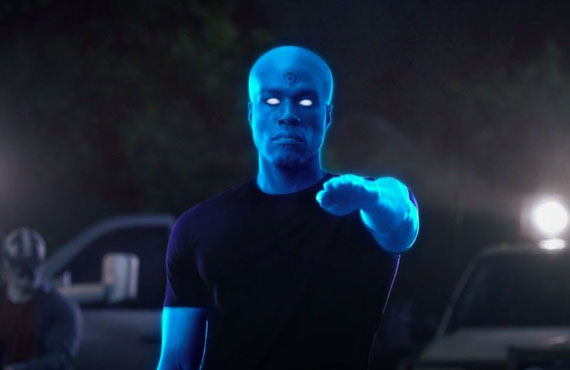
Well, we finally got the answer to "Who watches the Watchmen?" and the answer is Emmy voters — to the tune of 26 nominations, leading all other TV programs. Damon Lindelof's daring continuation of Alan Moore's acclaimed graphic novel was nominated for Outstanding Limited Series, scored acting nods for lead actress Regina King plus supporting players Jean Smart, Yahya Abdul-Mateen II, Louis Gossett Jr. and Jovan Adepo, and seems poised to win big across the board come September. The series was incredibly well-reviewed when it premiered, but especially in the wake of George Floyd's murder and the burgeoning racial justice movement, the show (which directly confronted racism, a police state, and referenced America's white supremacist past via incidents like the Tulsa massacre) has taken on added meaning. Now the leader of the Emmys pack, Watchmen very much has a claim to being the TV show of the moment.
It's Succession vs. Ozark in Outstanding Drama
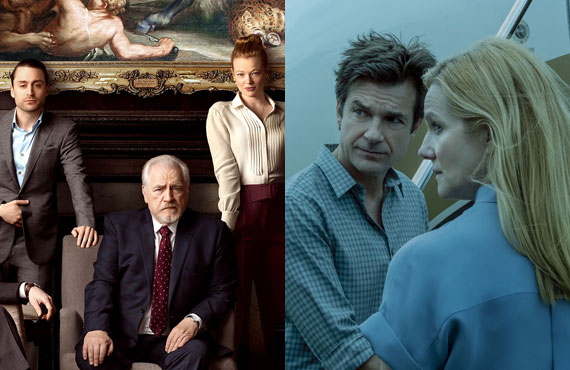
With Game of Thrones over, Emmy voters were in the market for a new frontrunner in Outstanding Drama Series. As expected, the two heirs apparent appear to be HBO's Succession and Netflix's Ozark. Both shows hauled in 18 nominations apiece, with Succession in particular dominating the acting categories with nominations for nine of its stars: Brian Cox and Jeremy Strong in Lead, Sarah Snook, Matthew Macfadyen, Nicholas Braun, and Kieran Culkin in Supporting, and James Cromwell, Harriet Walter, and Cherry Jones picking up Guest nominations. Ozark, meanwhile, spread out its nominations, with three acting nominees (Jason Bateman, Laura Linney, and Julia Garner), two writing nods, two directing nods, and two cinematography nods. It's tough to imagine another show muscling its way to the win in the Drama Series category, although with a total of eight shows nominated, stranger things have happened (like, hey, Stranger Things getting nominated for its actually pretty great third season).
Welcome Diversity in the Acting Nominations
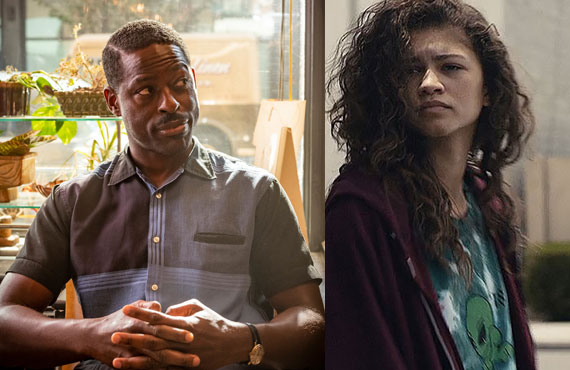
It seems like it's always a white-knuckle rollercoaster ride to nomination day, hoping that Hollywood won't vote through another all-white slate of nominees. Thankfully that was very much not the case with this year's Emmy slate. Every single major acting category had at least one nonwhite nominee, and in six of those categories, nonwhite performers made up at least half of the nominees. Obviously this is no time for Hollywood to pat itself on the back for its racial progress, but it was heartening to see BIPOC nominees up and down the ballot, from Emmy faves like Sterling K. Brown (nominated twice this year, for his performances on both This Is Us and The Marvelous Mrs. Maisel) to first-time nominees like Zendaya (Euphoria) and Yvonne Orji (Insecure).
What We Do in the Shadows Makes Emmy Voters Their Collective Familiar
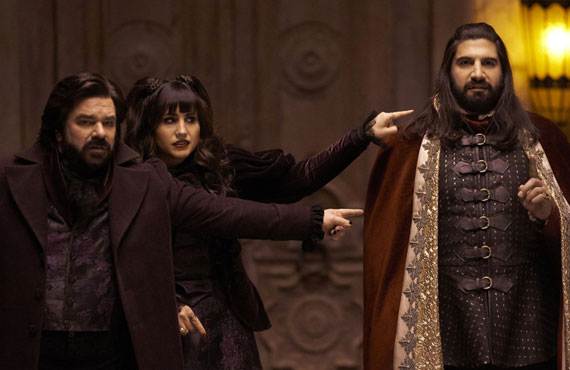
The biggest shock in the Outstanding Comedy Series came right at the end of the alphabetical list of nominees, as FX's second season of What We Do in the Shadows showed up alongside more widely predicted shows like Schitt's Creek, The Marvelous Mrs. Maisel, and The Good Place. And while none of the show's stellar cast made it into the acting races, the show did score a whopping three nominations in the Writing category — more than any other comedy — for the episodes "Collaboration," "Ghosts," and "On the Run." The comedy about a trio of vampires living out their mundane existence on Staten Island has quickly established itself as one of TV's funniest shows, but because of its genre it seemed like it might be a bit too weird for the Emmys, a notion that we can happily put past us.
Long-Awaited First Nominations
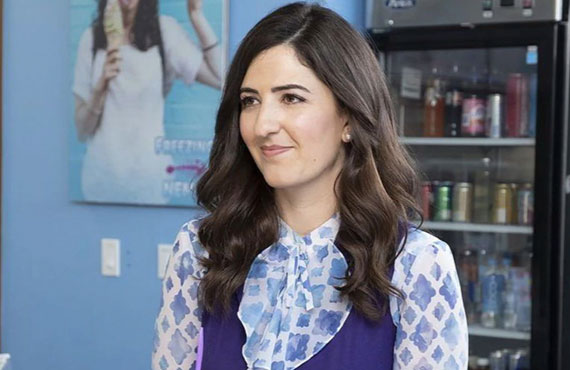
The expansion of the acting categories on a sliding scale meant that the Supporting Actor and Actress categories in Comedy and Drama had room for eight nominees apiece. This likely helped quite a few performers who've been overdue for Emmy nods get their first crack at the trophy. The Good Place's D'Arcy Carden and William Jackson Harper were finally recognized for the show's final season, having been worthy for years. Ditto Dan Levy and Annie Murphy, who both got nominated for the final season of Schitt's Creek — yes, their "supporting" distinctions are pretty dubious, but let's not get cranky. Cecily Strong also got her first Emmy nomination, alongside Saturday Night Live cast members Kate McKinnon and Kenan Thompson. And after four seasons, the aforementioned Yvonne Orji finally got nominated for playing Molly on Insecure, reliably one of TV's best performances. Of course, not every long-overlooked performer managed to break through. Better Call Saul fans once again saw their beloved Rhea Seehorn left out of the Supporting Actress in a Drama category. Rita Moreno's scene-stealing work on One Day at a Time again went unrecognized. And Alison Brie remains a zero-time Emmy nominee despite her continued stellar work as the centerpiece of GLOW.
Emmy Faves Faltered
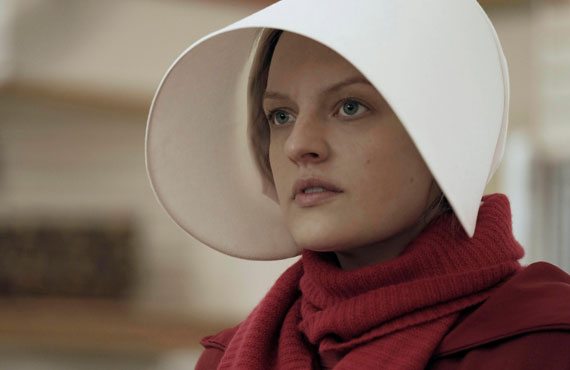
The expanded acting categories didn't help everyone. Some of nomination day's biggest and most shocking snubs came for those whom Emmy voters have flocked to in the past. Elisabeth Moss, a nine-time nominee who won Lead Actress in a Drama three years ago for The Handmaid's Tale was left out in the cold this year, despite The Handmaid's Tale itself hanging on for an Outstanding Drama Series nomination. With eight slots available for shows and only six for lead actresses, Moss may have just been a casualty of simple math. Ditto Bob Odenkirk, who has been nominated for each of Better Call Saul's four previous seasons, but this year got the big snub-ola. And while Curb Your Enthusiasm once again placed among the year's nominated comedies, Larry David also failed to score a nomination (despite being previously nominated for six of the show's ten seasons). Elsewhere, perhaps the most shocking snub of the day was that Merritt Wever — a two-time Emmy winner — wasn't nominated for delivering one of the very best performances of the year in Netflix's Unbelievable. The fact that the acting categories in Limited Series weren't expanded as widely as in Drama and Comedy meant a lot of Emmy faves fell by the wayside. Seven-time Emmy champ Allison Janney got squeezed out of the Supporting Actress in a Limited Series category despite widespread acclaim for her turn in the HBO movie Bad Education. That category, a murderer's row of actressing talent, also left off Sarah Paulson (Mrs. America), a seven-time nominee who won back in 2016 for playing Marcia Clark in The People v. O.J. Simpson). Likewise El Camino star Aaron Paul, who failed to claim a nod for returning to the role that won him three previous Emmys, Breaking Bad's Jesse Pinkman.
Disney Gets a (Big) Win
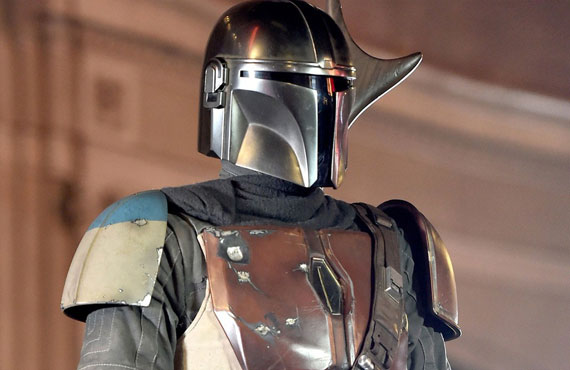
Perhaps the most notable nomination in the Outstanding Drama Series category was the Disney+ series The Mandalorian. The Star Wars universe series was the platform's biggest success story in its early months, and the fact that it racked up a total of 15 nominations, managing to crack the glass on the Emmys' top category in year one is a pretty big deal. Even bigger, The Mandalorian's nomination edged out The Morning Show, which, despite four acting nominations (for Jennifer Aniston, Steve Carell, Mark Duplass, and Billy Crudup) failed to make the Drama Series lineup. That has to sting for Apple TV+, which could've used that breakthrough nomination even moreso than Disney+, considering Apple has struggled mightily to find a foothold in the new streaming landscape.
Reese Witherspoon With the Bad Kind of Triple Play
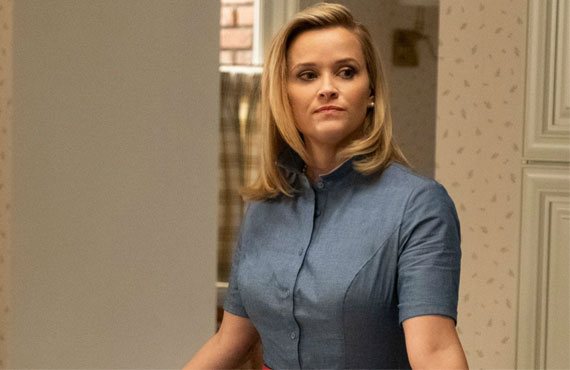
Going into nomination morning, Reese Witherspoon had three separate shots at an acting nomination, yet when Leslie Jones was done screaming at everybody and the smoke had cleared, Reese was nomination-less. Not for Big Little Lies, not for The Morning Show, and not for her limited series Little Fires Everywhere. None of the snubs, taken individually, come as a true surprise. In all three cases she faced internal competition, not only from herself but also her co-stars. In a way, Witherspoon was a victim of her own success as a producer (she's an executive producer on all three shows). She's been upfront about her desire to make TV projects that give actresses great roles to play, and indeed on all three shows Witherspoon shared Lead Actress designation with a co-star; in two cases, that co-star got nominated over her: Jennifer Aniston for The Morning Show and Kerry Washington for Little Fires Everywhere. Neither Reese nor Nicole Kidman got nominated for Big Little Lies, which delivered a disappointing second season and saw its only blip of Emmy success in the Supporting Actress category, where Laura Dern and Meryl Streep were both nominated. That's a real splash of cold water for a show that basically steamrolled the Emmys in 2017.
David Simon, Emmy's Least Favorite Person
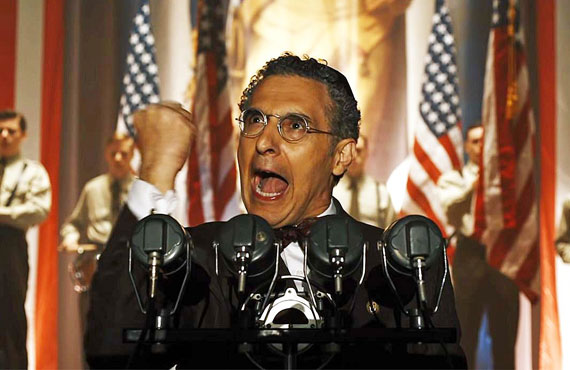
To be fair, it's not like EVERY David Simon-produced series has gotten the cold shoulder from the Emmys. His 2000 miniseries The Corner won three Emmys, and Generation Kill was nominated for a bunch, and won a handful. Even Treme got more Emmy nominations than you'd think. But infamously The Wire was only ever nominated for one Emmy, and in recent years, his critically acclaimed series Show Me a Hero and The Deuce have been all but ignored. Now The Plot Against America joins that list, despite clearly being one of the year's best limited series, featuring highly nominatable turns by the likes of John Turturro and Zoe Kazan. Not to mention a story that feels incredibly resonant in our current political moment. Alas, crickets from the Academy.
Brad Pitt, Emmy's Most Favorite Person
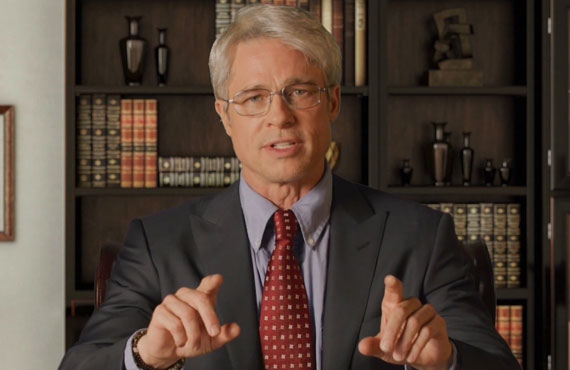
Since he broke through as a major movie star in the early '90s, Brad Pitt has done precious little television. Hardly any at all, really, aside from a voice performance on King of the Hill and an odd turn as a weather man on The Jim Jeffries Show that I guarantee you nobody saw. And yet on Tuesday he got his second Emmy nomination as a performer. The first was for his guest appearance on Friends in 2002. That appearance was a stunt, sure, meant to capitalize on his relationship with Jennifer Aniston, but it was still a character with an arc that lasted the better part of a half-hour. This year, it's another Guest Actor nomination, this time for playing Anthony Fauci for about two minutes on Saturday Night Live. In terms of a screen-time-to-nominations ratio, Brad Pitt has got to be close to an all-time Emmy record. Of course, all that effort to get Brad Pitt and Jennifer Aniston onto the same awards show is gonna seem a little silly when the Emmys end up taking place on Zoom.
Joe Reid is the senior writer at Primetimer and co-host of the This Had Oscar Buzz podcast. His work has appeared in Decider, NPR, HuffPost, The Atlantic, Slate, Polygon, Vanity Fair, Vulture, The A.V. Club and more.
TOPICS: 72nd Primetime Emmy Awards, Apple TV+, Disney+, The Morning Show, Ozark, The Plot Against America, Schitt's Creek, Star Wars: The Mandalorian, Succession, Watchmen, Brad Pitt, D'Arcy Carden, David Simon, Elisabeth Moss, Reese Witherspoon, Sterling K. Brown, Yvonne Orji, Zendaya